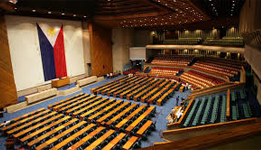 On December 15, 2021, senators approved on third reading the Senate Bill No. 2094; garnering votes of 18-3-0 in favor of amending the Commonwealth Act No. 146 or the Public Service Act of 1936. The country was long held back by its underinvested public service infrastructure which in turn prohibited healthy market competition and resulted in high service costs that burden both direct consumers and exporters in general.
On December 15, 2021, senators approved on third reading the Senate Bill No. 2094; garnering votes of 18-3-0 in favor of amending the Commonwealth Act No. 146 or the Public Service Act of 1936. The country was long held back by its underinvested public service infrastructure which in turn prohibited healthy market competition and resulted in high service costs that burden both direct consumers and exporters in general.
The Export Development Council-Networking Committee on Legislative Advocacy and Monitoring (EDC-NCLAM) advocated for the liberalization of telecommunications and common carriers in the previous version of the bill. Hence, this development in liberalizing our economy is greatly supported by the EDC. These amendments will reduce the cost of inter-island shipping by paving the way for competition in the shipping industry.
Continue reading Liberalization of public service: An amendment to the 85-year-old Public Service Act


 The consolidated Philippine Economic Stimulus Act (PESA) House Bill 6815, also known as the Accelerated Recovery and Investments Stimulus for the Economy of the Philippines (ARISE Philippines Act), seeks to ensure business continuity and aid the recovery of critically-impacted businesses brought about by the afflicting impacts of the COVID-19 pandemic.
The consolidated Philippine Economic Stimulus Act (PESA) House Bill 6815, also known as the Accelerated Recovery and Investments Stimulus for the Economy of the Philippines (ARISE Philippines Act), seeks to ensure business continuity and aid the recovery of critically-impacted businesses brought about by the afflicting impacts of the COVID-19 pandemic. The Export Development Council (EDC) through its Networking Committee on Legislative Advocacy and Monitoring (NCLAM) has prioritized the export sector’s legislative agenda for the 18thCongress to have a more competitive export industry.
The Export Development Council (EDC) through its Networking Committee on Legislative Advocacy and Monitoring (NCLAM) has prioritized the export sector’s legislative agenda for the 18thCongress to have a more competitive export industry.